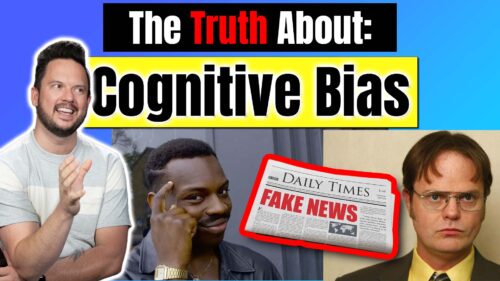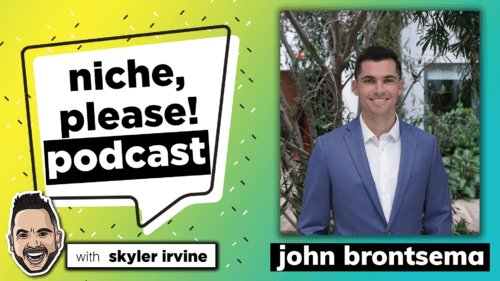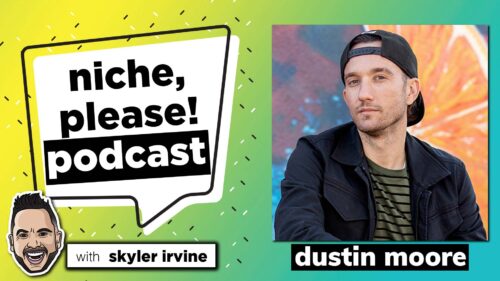Hello, my friends, and welcome back to the Skyler Irvine Podcast, Episode 131 of the Skyler Irvine Podcast. Thank you for joining me today. We’ve got a very fun episode. But before we get into that, it would mean a lot to me if you liked, comment or subscribed because a lot of you haven’t and I would love to hear from you and make sure you are watching it or listening and also share this with a friend if you can.
Today, we are going to be touching on Uber, some digital trends and some big winners and losers for the week. Without further ado, let’s get started with Brandwatch. This is a company we’ve mentioned before in Brandwatch but I wanted to go a little bit deeper because I did get some feedback on it that I wanted to clarify, but my thought process and belief with the future of Uber is something that’s been to the front of my attention for a really long time and find it very interesting because it’s an app that came about, as a company that came about, a brand that came about that just took over the world and it changed an entire industry. It changed an entire generation and I mean that sincerely.
There are kids that get on their 16th birthday, an annual Uber card instead of getting a car. For most people, getting a drivers license or getting a car is less about the actual automobile and more about the freedom of being able to leave your house and travel far distances. As a kid, you get a bicycle that allows for that. When you turned 16 that freedom of being able to leave the house and go places that are further than down the street, that’s mostly what people are chasing after; and Uber provided a whole new generation of access to automobiles that didn’t exist before. Whether or not you are someone who just struggled to getting a cab or are you in a city that they weren’t as prevalent or you’d have to call and order a cab and wait for it; and it was very, very inefficient and led to a lot less travel. DUIs dropped dramatically in cities that embraced Uber and it’s done a lot of great things.
Uber, what it is as a business and what it is as a company has just really fascinated me because it’s not really a car service as much as it’s a technology that brought people together. It brought people that were unemployed with an automobile and it gave them an opportunity to make some money, and it also provided people that didn’t have access to rides that needed them. It didn’t own cars. They technically don’t even have employees. The car drivers are contractors. And what does Uber actually own other than the mind space of, “I’m going to hop in an Uber instead of a Lyft or instead of a taxi or instead of whatever else happens to come to be.”
What’s really interesting about this model is what is it long-term prospects, and I touched on this when I thought the end of Uber was in the middle. We weren’t at the beginning of the end of Uber, we were at the middle of the end. This is on a previous podcast. We touched on this because of the autonomous driving possibilities. Where we’re going to go a little bit deeper on today’s episode is, where are the incentives for people that are working at Uber? And what I mean by that is if you are an Uber driver, what are your incentives to be the best Uber driver possible? Not only do I think they don’t exist, I actually think they work in reverse.
How am I getting a call from me right now?
As an Uber driver, what are your incentives to be the best possible Uber driver you can be and really what are the ways of doing that? Because people just want to get from A to B, whether or not it is having perfect conversation or not talking, having an air conditioned vehicle or having a nicer vehicle. But if you have to pay to buy the nicer vehicle to charge more, you end up losing a lot of that in the long-term, in the long run.
The incentives in an economic standpoint actually punish the higher-skilled drivers. If you are really good at what you do, you’re still limited to the amount of drives and the amount of rides that you’re able to provide. If you are a skilled driver and you do demand a higher income, you’re not incentivized, you’re not rewarded with more money because the cost incentive and the economics of Uber is all geared around driving down the cost per ride. They already lose money every single time they do a ride. They need to get those costs down as low as possible. They’re not looking to incentivize drivers with a higher income or reward an amazing Uber driver, unless Uber is able to get more tips from the customer. That’s their only incentive.
The reverse is actually true for the Uber’s business model is to how low can they get those driver costs, and the one thing that they’re not able to have a lot of flexibility with is the cost for the actual human being in the car. This is why the business model is only going to survive with driverless vehicles and we’ve touched on this a little bit. It might make sense. But hopefully by now going through that path, we’re able to clearly see that what Uber owns is just the brand, the technology. The technology is being copied. It’s nice to be able to have an app that allows you to travel to multiple countries and use the same app to get vehicles.
I mean we live in a world where Brexit happens. Countries aren’t getting along with anyone for a long-term, let alone with an American company internationally. It’s inevitable that Britain will have their own Uber that’s probably owned by a government agency, so no longer will you be able to travel with just one app. Everyone’s going to eventually have their own apps because the barrier of that technology is going to get smaller and smaller.
The incentives for rides being as cheap as possible are always going to live on. Driverless cars are the future. And while Uber would argue that driverless cars are the future of Uber, it might also be the destruction of Uber because I think there’s much more interesting possibilities at play. If the technology of putting an app on someone’s phone is much easier to copier than building out an entire infrastructure of automobile manufacturing, it does make a lot of sense that the future of driverless technologies will be owned by the manufacturing car companies themselves. And then that plays into the future of rideshare could be also owned by these driving car manufacturers themselves.
What do you think is more likely, the 15 years from now having an Uber app that allows you to order up all these driverless cars from a myriad of car companies or will you have a Cadillac or an Audi app that allows you to order your Audi pickup wherever you go? Maybe it’s more of a subscription-based model that you don’t even own a car at all. You lease a program through Audi that puts an app on your phone and allows you to have 15 Audi rides per month or 30 per month. What does that subscription bundle look like when you travel the world? Could it be synced up with a car company with a hotel company? Now your travel expense is now a subscription service rather than a pay to play. If Audi and Hilton and United Airlines all partner up for a subscription bundle, could your travel include an Audi ride to the airport, flying into a new city to stay at a Hilton hotel that is all part of a subscription service?
This is much more likely in a world where houses are getting so expensive that millennials and under can’t buy them. There’s a new article talking about how cars are getting too expensive for millennials and under to buy them. Everyone’s wondering who’s going to buy all this expensive stuff that you need. Meanwhile, millennials and under are saying you don’t need to own a home, you don’t need to own a car. And the companies that are going to win are the ones that are going to provide value and services to this next generation. And this is the tech talk generation. This is the generation that is looking at everything that our parents did and ending in these giant houses, living alone in the suburbs, that they’re going to have a harder time selling when everyone is trying to sell their houses in the suburbs.
All of these things that the American dream has told generations that these are the things you want because that’s essentially what they have been sold, we’re going to have a whole new generation of buyers who are saying no and instead they’re saying yes to leasing, yes to renting and yes to subscription services. These subscription services might look like nothing we’ve ever seen before, and to me it’s not going to be a surprise.
Moving on to Digital Trends. In this week a very interesting article caught my eye because, one, if an article makes it to the Wall Street Journal or it makes it to the New York Times, typically it means it’s almost too late in the trend cycle. Like things that are cool, are cool until they make big media and then it’s almost by the time it makes it there, it’s not even a trend anymore. This one’s a little bit different because it’s part of a bigger trend and the Wall Street Journal recently had an article, that we’ll link to and post probably a photo like right here, that highlights just what Finsta and Rinsta is and what those mean for the next generation.
And this is the generation that has grown up with mobile devices and social media. My generation, I’m a millennial, I grew up with it transitioning. We were at the beginning. We saw it form. We’ve seen a world before, during and after this has come to be. The next generation has just seen everything and this is the generation that grew up knowing why Paris Hilton and Kim Kardashian got famous. They’ve also seen certain people lose their jobs and end their careers because certain content that they posted or shared to someone privately got leaked to the public. They’re a lot more cautious. They’re a lot more wary. They understand what fake news is without having it be explained to them.
I’m the generation that would sit in line at the grocery store and see the National Enquirer and see these ridiculous headlines and say, “Wow, that’s a ridiculous headline.” I assumed everyone thought that. Meanwhile, when an older generation gets on Facebook and I see a ridiculous headline that would belong on the National Enquirer, they look at that and decide to share it with their entire family saying, “Hey, check out this news I found.” Even though the website comes from something that says like Fox News 542/UpdateNew and that’s the website title. You’re like, anyone in the world knows that’s a fake website title. But if you’re sharing that, you’re someone who doesn’t know those things. That’s that chasm of not understanding where things are and where things are going and being able to be scammed or fooled.
This next generation is going to be so much more difficult. They just understand things. They were born with things. They can feel an ad coming before you’re even thinking about the product you want to sell, so it’s harder to sell to those people. They’re also the generation that is looking at this world and saying, “Okay, everyone’s being public. Everyone’s trying to build a following. I want to be able to post something that my parents aren’t following or they’re not copying or they’re not spying on me.” But meanwhile, their parents think they’re smart because they’re following them or spying on them. Kids are a lot smarter than you’re ever going to give them credit for.
Long story long, that leads us to this rise of Finsta. Finsta stands for fake Insta or fake Instagram account, and this is where a lot of kids have a secondary Instagram account. They have their first Instagram account or Rinsta, where it’s their public profile that their parents and friends and family see. Then they have a private one with a pseudo name, kind of like a Reddit or AOL screen name back in the day, and that’s where they post the real stuff for just maybe 30 private friends. It’s almost like a private chat, a private text message group, but taking place on Instagram profile. And parents don’t know these exists and these are where kids are doing a lot of interaction or they’re posting and deleting things quickly. And they’re manipulating not in a negative way, but they’re taking the existing tools or the existing platforms and making them their own and creating the whole new sub genre of work.
The trend that stands out to me isn’t the Finsta digital trend, but it’s the trend going from public and exposure to private and exclusive. And why that’s going to be interesting is because it’s going to be so much harder for marketers to do their job and try to reach these people. It’s going to shift an entire generation that is doing things at a smaller scale rather than trying to reach as many people as possible, and it’s also going to lead to a lot of new changes and new developments and big companies spending a lot of money to try and reach these people.
Where it’s a huge advantage for creators is, the creators are going to win having value, creating something that people want to engage with, are searching for. I think there’ll be a surge in content marketing as far as creating content that people are actually seeking for value rather than paying to pop up in front of your feed. Because the first private text messaging company, whatever happens to be that starts showing ads in your private group, they’re going to lose a lot of their user base. How are they going to be able to monetize that will be a very interesting trend to keep an eye on. But understanding that the digital trend that we’re seeing right now is going from something like TikTok where it’s great to have a million followers, but those same people also have a private Instagram account that they’re engaging with their small community of friends and that’s where the real stuff happens.
Because as cool as it is to have a million followers on TikTok, what does that really mean? What does that convert to? If you’ve spent some time on TikTok, it’s neat, it’s nice to see those views. But if you have a 15 second funny clip that a lot of people liked and had a good laugh on, they’re already onto the next 25 clips. How much are they remembering you? How much are they engaging with you, learning about you, understanding your story and your personality? It’s not that it’s impossible, it’s just a little bit more difficult and some views matter more than others. And being able to be involved with a 30-person private group of a very strong and powerful community, for most people is going to provide a lot more value than having hundreds of thousands of likes and thumbs up on a platform like TikTok.
Moving on to Wins, Losses and Bold Prediction. Big winner of this week, if you watched the All-Star game or if you’ve been paying attention to any of my content, but this is a topic I’ve been tracking. But I want to get the name right. Jalaiah Harmon is the original inventor of the Renegade dance which just took TikTok by storm, and the most famous TikTok personalities around are Charli D’Amelio. I don’t even know her name because I’ve only seen it read. In her family, basically she had gotten famous by taking this dance and building up a huge following on TikTok.
This is very interesting because there’s a lot of these really small social media platforms that you’ve just never really heard of, but they succeed in smaller and smaller communities and some of them are dance heavy. And what you’re seeing is things that take off really well in these sub genres in smaller social media platforms and then other people copying them and then repurposing them on the larger platforms, gaining a huge following, building awareness and not getting a lot of credit to the original creators. This story ends with a happy ending, which was started by actually our shout out of last week’s source, Taylor Lorenz’s New York Times article.
Essentially, highlighting the person who invented this dance. She didn’t get any credit for it. Meanwhile, other people are building millions of followers, so big shout out to Jalaiah Harmon because she was not only featured at the All-Star game dancing with these TikTok celebrities. Everyone has given her credit. They’ve discovered her. She’s building a following. She’s getting a lot of recognition for this. The person who created the song Renegade, which is what led to all of this has given her a personal shout out. The original creator, because of Taylor Lorenz, finally got the recognition she deserved because a reporter actually went all the way back to try to find the original creator of the dance that went viral, where most of the people that were getting famous doing the viral dance had no idea where it even came from in the first place, so big winner. Congratulations to you. That is awesome.
Big loser of the week is multiple losers, but this is a really unfortunate situation, and then I’m not much of a sports fan anymore. It’s just hard to be. But what’s going on with the Houston Astros with this entire cheating scandal and the fact that the commissioner offered up the entire organization immunity if they told the truth. It opened up all these players to basically tell the truth, told them how bad they cheated. It definitely impacted the World Series. It definitely impacted the season. And the baseball community, essentially, it was just like, “Okay, well that’s behind us. Let’s punish them a little bit and move on.”
Meanwhile, the entire rest of the league is extremely pissed. The fan bases are pissed. Everyone’s saying that their punishment isn’t nearly enough. Baseball has a historic history of unfair and unconsistent punishment. Pete Rose is punished for his entire life for betting on baseball games that he was playing in and trying to win. Meanwhile, someone else impacts the World Series by completely cheating and stealing signs. He’s using technology and they’re not punished at all. He’s suing the league right now to try to be reinstated. There’s players on our pissed. The season’s about to start the commissioners pretending nothing’s happened.
This is a big loss for baseball. They’re already hurting because they’re trying to compete with all of these new avenues that they’ve never had to consider before. MLS is on the rise. E-sports is on the rise. Baseball is struggling with capturing young fans. I don’t know how a father is able to explain to his son, taking him to a game if he’s eight years old saying, “Well, that team cheated, but they still win so they get to keep their trophy.” What lessons are you teaching? It’s very confusing and it’s a very unfortunate thing to happen to the sport of baseball and it’ll be interesting to see how they recover because this is not the first scandal that they’ve had to deal with because they still are in the shadow of the steroid scandal. Baseball is a big loss this week and it might continue to lose in the weeks to come.
Bold prediction moving forward. This is going to be a little bit of a longer play, but we’ve got a lot of these sports streaming rights coming up to negotiations soon. And what we’re going to see is digital streaming take a huge forefront in this. What does that mean for something like Monday Night Football, which is currently on ESPN, will likely return to ABC and ESPN+, which is their app.
Digital sports going forward, baseball I think is going to take a huge hit from everything that has dealt with. And even though they’ve got the most games, I think we’re finally going to see a huge surge in MLS value and a huge drop in baseball’s value. Unless they’re able to get their stuff together and make some dramatic changes soon, they’re trending in the wrong direction while the MLS is trending up.
And as excited as I am about the prospect of e-sports, I think there’s a lot of hurdles in e-sports that we might have to do an entire podcast on for it to compete with the likes of something like the MLS and football and basketball. In the short-term, I talk about a five-year span, I see a huge jump in the MLS taking a lot of the loss of interest that baseball is going to start giving up this year and in the years to come. So bold prediction, MLS overtakes baseball as America’s sport. That’s really bold. I guess football is probably America’s sport.
Yeah.
So bold prediction, MLS takes over baseball as America’s number three sport. Thank you guys for checking out this episode of the Skyler Irvine Podcast. I hope you subscribe. If you haven’t already, leave me a comment, leave a review. I’d love to hear from you and we’ll see you on next week’s episode. Good-bye.





